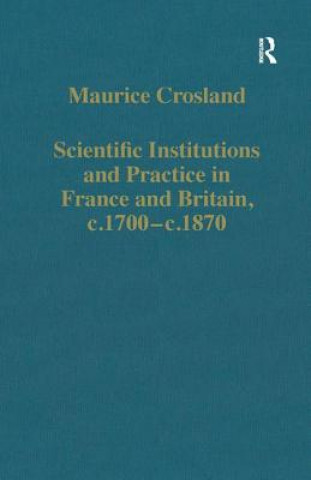
Delivery
Shopping guide





Doesn't suit? No problem! You can return within 30 days
 Gift voucher
any value
Gift voucher
any value
You won't go wrong with a gift voucher. The gift recipient can choose anything from our offer.
Scientific Institutions and Practice in France and Britain, c.1700-c.1870
 English
English
 542 b
542 b
 Delivery to Austria
Delivery to Austria
30-day return policy
You might also be interested in


This second collection of studies by Maurice Crosland has as a first theme the differences in the style and organisation of scientific activity in Britain and France in the 18th and early 19th centuries. Science was more closely controlled in France, notably by the Paris Academy of Sciences, and the work of provincial amateurs much less prominent than in Britain. The most dramatic change in any branch of science during this period was in chemistry, largely through the work of Lavoisier and his colleagues, the focus of several articles here, and the dominance of this group caused considerable resentment outside France, not least by Joseph Priestley. The issue of authority in science emerges again, within France under the rule of Napoleon, in a study of the exceptional power exercised by the great mathematician Laplace both in theoretical science and in academic politics. This exploration of organisation and power is complemented by a comparative study of the practice of early 'physics' and chemistry and their different reliance on laboratories. This raises the question of whether chemistry provided a model for later experimental work in other sciences, both through the construction of pioneering laboratories and in establishing early schools of research.
About the book
 English
English


 Contact
Contact How to shop
How to shop





















